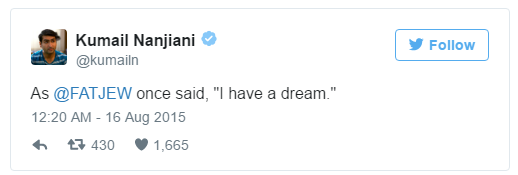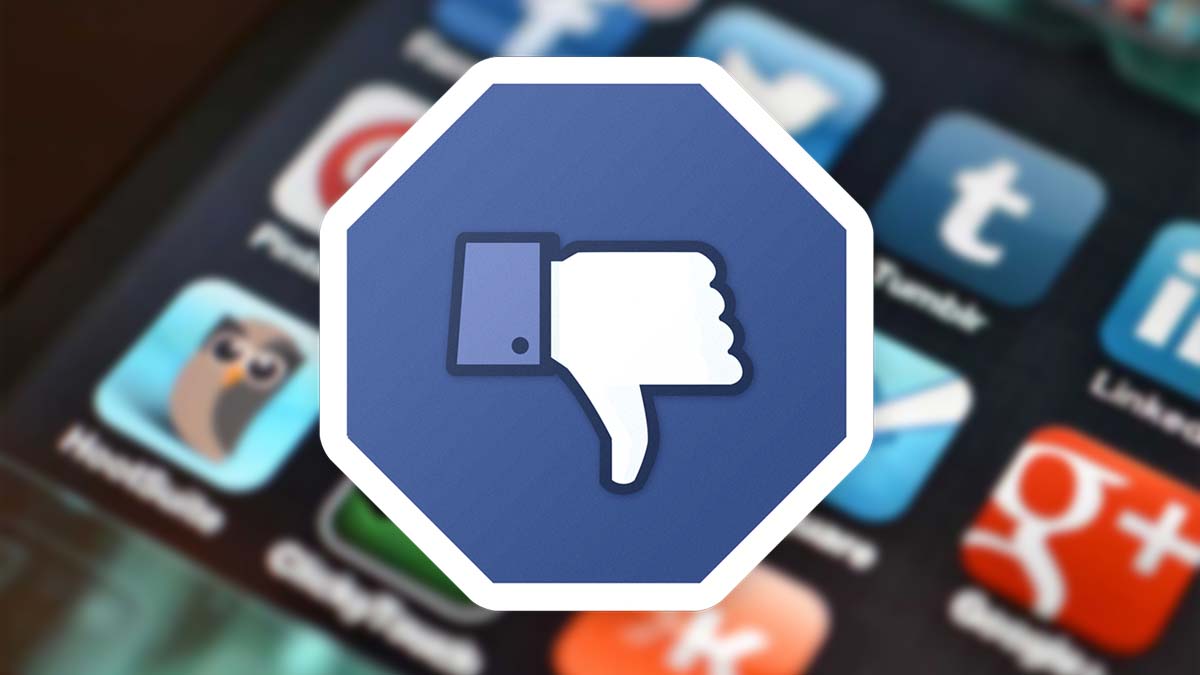
Although a good social media fail gives us so much joy and quite a few facepalm moments sometimes you do really have to wonder what people were thinking when they were posting. These fails have turned into massive marketing disasters and in social media, even years after, users never forget. Too politically incorrect advertising to embarrassing rants we have seen it all but after laughing and massively judging their approach it is crucial to learn from it and make sure we don’t make the same errors. So here is what we should learn from the history of marketing fails…
- Don’t be insensitive
So let’s start big, the owner’s daughter of Miracle Mattress, created the ad below to promote their sale. However, it was no ordinary sale. This sale started on the 9/11 anniversary and the advert featured their so-called “twin tower” sale with two employees falling underneath the mattresses at the end. As you can imagine this was not received very well when it was published on social media. Not only did the employees receive death threats but the owner of the company made a formal apology for the advert and announced that they would be closing their store indefinitely.
What should we take from this?
Never try and make light of or use such a horrific and emotional event as an advertising tool- it definitely will not improve your sales and you will end up with a lot of angry customers. Think before you market because this mistake could have easily been avoided if someone had just questioned how this advert would be received. Put yourself in the shoes of your customers and audience and see how you would react- don’t get blinded by the sales pitch.
- Don’t mix up personal and company accounts
Next, up we have probably the most common social media mistake. A little tweet that would have probably created no traction if it was sent on his personal account was mistakenly posted on StubHub causing it to go viral in minutes. The tweet below displayed how much a certain employee enjoyed his job which obviously represented StubHub in a very horrific way. Whether it is a display of a political opinion or something as basic as someone complaining about their job- keep it on your personal AND private account.
What should we take from this?
Always ALWAYS check what account you are posting on before you press send. As one of the negatives of the internet is once it is out there it can never ever be deleted. Also, the consequences of making this tiny error is normally your job. Even if you love your job as much as this StubHub employer does, it is never ideal to get fired from a job for such a public mistake.
- Don’t send photos before checking them
US Airways had a pretty tough time in April 2014. In response to a customer’s criticism on a delayed flight, US Airways responded requesting feedback but unfortunately accidentally attached a rather inappropriate photo of a women with a plane… Unsurprisingly the tweet was copied, retweeted, shared and US Airways still have not been allowed to forget about it! They apologised profusely and claimed that the accident was down to them attempting to report the photo but instead accidentally attaching it. Tough week in their marketing department!
What should we take from this?
Although the repercussions probably won’t be as horrific as US Airways, always check what photos you are attaching. It becomes harder in social media sites such as Twitter because sometimes the images name comes up, not a preview. However, it is crucial that the tweet or post is related to the message because even if it isn’t as inappropriate as US Airways, you and your business is still going to look pretty stupid- especially if you are replying to a customer’s criticism or query.
- Don’t ask for user participation without thinking (ESPECIALLY) after a recent scandal
After the release of Blackfish and the emergence of old SeaWorld workers coming out and publicly shaming SeaWorld and what they stood for, SeaWorld decided they needed to fight back. Unfortunately, they may not have gone the best way about it. The aim was to represent that SeaWorld did have good intentions and discuss the health and standard of living of their animals. However, this all backfired when the hashtag #askSeaWorld started trending with most tweeters using it to publicly shame SeaWorld and how horrifically they treated their animals. Despite many responses trying to defend their company, it was entirely outweighed by the mass amount of animal lovers and professionals who destroyed any positives with scientific knowledge of animals in captivity. Not an ideal outcome for SeaWorld.
What should we take from this?
It is never ideal getting publicly shamed on Twitter, especially when it’s about killing animals. Also, this being a response from Blackfish meant that SeaWorld achieved the exact opposite of what they wanted- they gave more publicity to Blackfish and Orca deaths than promoting SeaWorld. So, think before you tweet especially if you are asking for feedback, because you really never know what some people will reply with and as soon as one comment goes viral or a horrific hashtag starts trending, well there is no way back.
- Don’t automate your messages
Coca-Cola came up with an exciting idea when they created a Twitter bot that took negative messages and turned them into happy images. It was meant to cut through social media and make all this negativity positive in some way or another- they just had to put the hashtag #makeithappy into the tweet. Unfortunately, this campaign got hijacked by @MeinCoke who tweeted extracts from Hitler’s Mein Kampf making the Coca-Cola bot tweet large chunks of Mein Kampf with photos of a cat playing drums or a smiling banana! This shows how even a great marketing strategy can be fooled when you place automation into the mix.
What should we take from this?
As brilliant as technology is and how these great advancements seem to be such time-saving solutions, sometimes the personal touches really are important. Although most of these mistakes probably won’t come off as racist, like this one, automation does remove the emotion. Followers are not stupid and a little bit of a personal touch really does make a difference. Put the human behind the machine and hopefully your followers will recognise your effort, work ethic and how non-racist you actually are!
- Don’t get your facts wrong
After the death of Nelson Mandela, a tweet by Paris Hilton was retweeted thousands of times after she apparently quoted Martin Luther Kings “Dream” speech while tweeting about Mandela. According to her she never tweeted such things and another twitter account photoshopped the tweet and tweeted that claiming she had deleted it previously. Although many are unsure if Hilton did ever tweet this, it is important, especially as a company, to have a good track record of getting your facts right. It is never ideal to confuse two historical influential figures like that.
What should we take from this?
Before hitting that perfect send button really think about what you are sending. Yes, you may not have as many followers as Paris Hilton but mistakes as stupid as this one WILL go viral. I have seen multiple users with a mere couple of hundred followers have 10,000s of retweets on mistakes such as these. And do you really want to be known for things like this? When it comes to a business it is vital to get your facts right, seem professional and not come across as uneducated and ill-advised.
- Don’t put out an advert or photo without thinking
A beauty brand named Seoul Secret created an ad campaign called “white makes you win”- I know, already controversial. Placed with the video and photo below of actress and singer Chris Horwang talking about how her white skin helped her advance quicker in her career and led to her success, well you can see where it all went wrong. The campaign makes more sense when you release that the company was promoting skin-lightening cosmetics but the whole message behind it perhaps wasn’t ideal and the photo was just the icing on the cake.
What should we take from this?
However good a marketing plan may seem on that Monday morning when you are chatting with the few people that are awake enough to give any useful creative input- make sure you reassess this constantly along the way. It is so easy to get caught up in what you think is a great idea, especially if it was your idea. But it takes a real marketer to step back and think of the way your audience, and anyone else for that matter could perceive your advert. The example below shows this at its worse, and you can only imagine the sort of feedback they received from this.
- Don’t discuss any bad publicity on twitter- making it more popular
The tweet below is a response to Vanity Fairs article claiming that Tinder was simply a “hook up” app. Tinder replied on Twitter with not only the tweet below but also over two dozen other tweets claiming how they were much more than that and you only had to look at their user base and popularity to understand that. Unfortunately, like most outbursts, it brought more attention to the Vanity Fair article than it had originally. The outburst made Tinder look slightly weak and allowed all the Twitter trolls out there to mock the app and add to Vanity Fair’s criticism. Not the ideal outcome really?
What should we take from this?
Even though at the time insulting another company or even a customer on Twitter may seem like a good and perhaps clever idea- it most probably isn’t. Nothing says unprofessional and that you are bothered more than a public insult on Twitter. Those 140 characters can haunt you for years, especially if they get retweeted as much as most social media fails do! So, read before you tweet and make sure that if you were a customer or unknown party you wouldn’t think of the company tweeting as unprofessional or hilariously petty.
- Don’t always adapt your article to the hashtag
This photo of a teary-eyed quarterback Russell Wilson with a Martin Luther King quote was perhaps not the marketing stunt the Seattle Seahawks wished for. This tweet was written the morning after the Seahawks beat the Packers for a Super Bowl spot. They also included the hashtag #MLKday because it was crucial that this tweet showed up along others discussing the great fight for equal rights in America. Although the tweet was quickly taken down, it wasn’t before many followers and members of the public criticised the Seahawks for comparing their American Football success to the civil rights struggle in America. Mass amounts of publicity isn’t always a good thing…
What should we take from this?
Yes, if it is done skillfully and sensitively your use of a trending hashtag towards your company or marketing strategy may work and add to increased publicity and readers. However, if you try and use a hashtag (especially one surrounding death or human rights) and apply it extremely loosely towards sales or marketing your business you are going to get criticised, strongly. Not only does it seem like you are understating the significance of the actual meaning of the hashtag, it also looks like you will happily use people’s struggle as a benefit to your business- which in reality is a horrific idea. Realise when you can utilise a trending topic and when it’s best left to those who have a more related business.
- Don’t use others content without giving recognition
Josh Ostrovsky, the creator of the Fat Jew twitter account, has millions of followers combined over social media accounts. He is well known for posting funny memes and quotes and then getting paid by brands to promote products to his large user base. However, he had been accused in the past of re-using or taking other people’s original content and claiming it as his own. Things got worse when he announced he had signed a deal with a Hollywood talent agency. Comedians and users who had previously had their content stolen took to the internet to mock and shame Josh for plagiarising and claiming content. Turns out that creating a business based on other people’s ideas and content can only get you so far!
What should we take from this?
Never copywrite anyone’s material without giving them credit. It’s the internet. It’s not exactly challenging to find out who wrote it first and you will get slammed and mocked for passing other people’s words off as your own. You will lose your credibility and even make your current followers change allegiances to the original writer of the content. If you can’t write your own content to a good enough standard, maybe you should try and outsource your social media marketing.

Has your company ever made a social media mistake? What did you learn from it? Or do you know of other big brand social media mix-ups that others can learn from? Send us a message!
Lucidica are the IT department for Small Business








